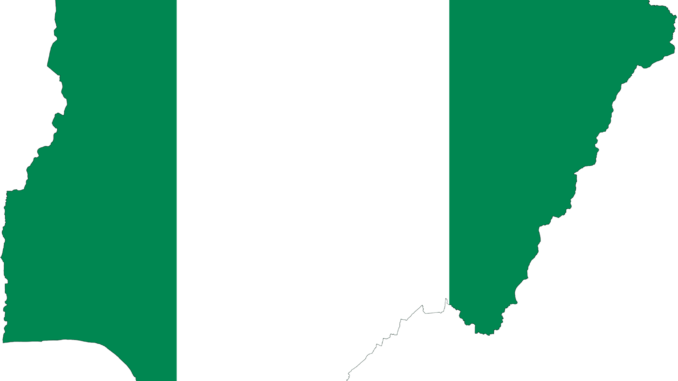
Before us is a toxic broth. And we are muddling it with a more fatal mix on the political scene. Governors and legislators, along with top party members are defecting, with allegations that these politicians have been suborned with public funds needed to improve our lot. Governance is on hold. But the grip of poverty on the citizen isn’t on hold.
An old star departs, leaves us here on the Shore, Gazing heavenward for a new star Approaching. The new star appears, foreshadows its going, before a going and coming that goes on forever… – Christopher Okigbo, in “Path of Thunder”.
Nigeria appears to be falling again under the excruciating spell of a star presaged by this remarkable poet of limitless possibilities. At the time Christopher Okigbo wrote the poem shortly before his death in 1967, the young republic had writhed in a series of setbacks dating from the Western Region upheavals.
Okigbo had a keen mind that correctly interpreted these crises as the shadows of some bigger, more devastating whirlwind into which we were being drawn. As he studied the events of his time, he decoded an abiku-like character in them. The details and nuances which chroniclers ignored or gave little attention to, he noted and scrutinised to find out why they exerted such powerful but hardly visible influence.
At the end of the day, the poet had come to the conclusion that Nigeria was almost perennially under the mystical charm of a wicked star. Once it appeared, everything was bound to go wrong. It went back and forth, bringing with it all the hosts of hell and death, inflicting us with one crisis, that looked to have been so solved at a point, only for the star to reappear in the future and torment us once more before giving us a pyrrhic respite in anticipation of another evil ahead…
Okigbo was not an unrepentant fatalist. Nor was he a prophet of doom. He merely set about looking at what went on around him and leveled the incidents down in poetry. What he revealed in the process was that our leaders and the people they led were learning little from the under flowing features of these happenings. And because they gained nothing from the past and the present (there was invariably little joy in the experience), the tragedies always returned without a check, even when there were premonitions.
Therefore the Western Nigerian crisis of 1962, the subsequent electoral malpractices in the same area, their disastrous consequences, Chief Obafemi Awolowo’s imprisonment, as well as the 1996 military coup, the internecine ethnic pogrom, the Biafran secession and finally the Civil War, didn’t come without distinct warnings. This implied that if the major actors had paid sufficient attention and had been less self-centered, Nigeria would have avoided the roller coaster spread of the blaze that started in the West.
In the Second Republic under the presidency of Shehu Shagari, we were at it again, pandering to the agonising control of the ogbanje star. In July 1981, Awolowo, the defeated presidential candidate in the 1979 election, wrote to Shagari, warning of the plight of the economy and what awaited the nation, if sheer complacency remained our weapon. He wrote: “There is a frightful danger ahead. Visible for those who care and are patriotic enough to look beyond their narrow self-interest. Our ship of state is fast approaching a big rock, and unless you, as a chief helmsman, quickly rises to the occasion and courageously steers the ship away from its present course, it shall hit the rock. And the inescapable consequence will be an unspeakable disaster such as is rare in the annals of man”.
Between then and now, succeeding military regimes and their civilian counterparts haven’t been able to wise up to the benefit of vigilance when cautionary notes sound. Gowon, Murtala Muhammed, Obasanjo, Buhari, Babangida, Abacha, Abubakar, Yar’Adua, Jonathan, etc. have all been victims of this myopic thinking.
What was Shagari’s response? He dispatched the national chairman of his party and his economic adviser to London, to tell the international community that Awo was wrong. His administration then embarked on a spending binge, advertising in several pages of the Financial Times of London that all was well with the Nigerian economy.
But a well-known economist, writing a couple of years later said that by “February 1982, when the long-overdue austerity broke upon Nigeria, Awolowo became the all-time economic hero of Nigeria”.
Between then and now, succeeding military regimes and their civilian counterparts haven’t been able to wise up to the benefit of vigilance when cautionary notes sound. Gowon, Murtala Muhammed, Obasanjo, Buhari, Babangida, Abacha, Abubakar, Yar’Adua, Jonathan, etc. have all been victims of this myopic thinking.
Now we have several challenges in the country ranging from the insecurity posed brought by the Boko Haram insurgency, the herdsmen’s murderous activities, armed robbery, kidnapping, ritual killing and barren governance, among numerous other problems.
Before us is a toxic broth. And we are muddling it with a more fatal mix on the political scene. Governors and legislators, along with top party members are defecting, with allegations that these politicians have been suborned with public funds needed to improve our lot. Governance is on hold. But the grip of poverty on the citizen isn’t on hold. It is hastening the arrival of Christopher Okigbo’s recurring star.
Clearly, this is a case of failed political leadership. 2019 must deliver us from this crop quickening the footsteps of the messenger of doom.
Banji Ojewale writes from Ota, Ogun State.
END

Be the first to comment